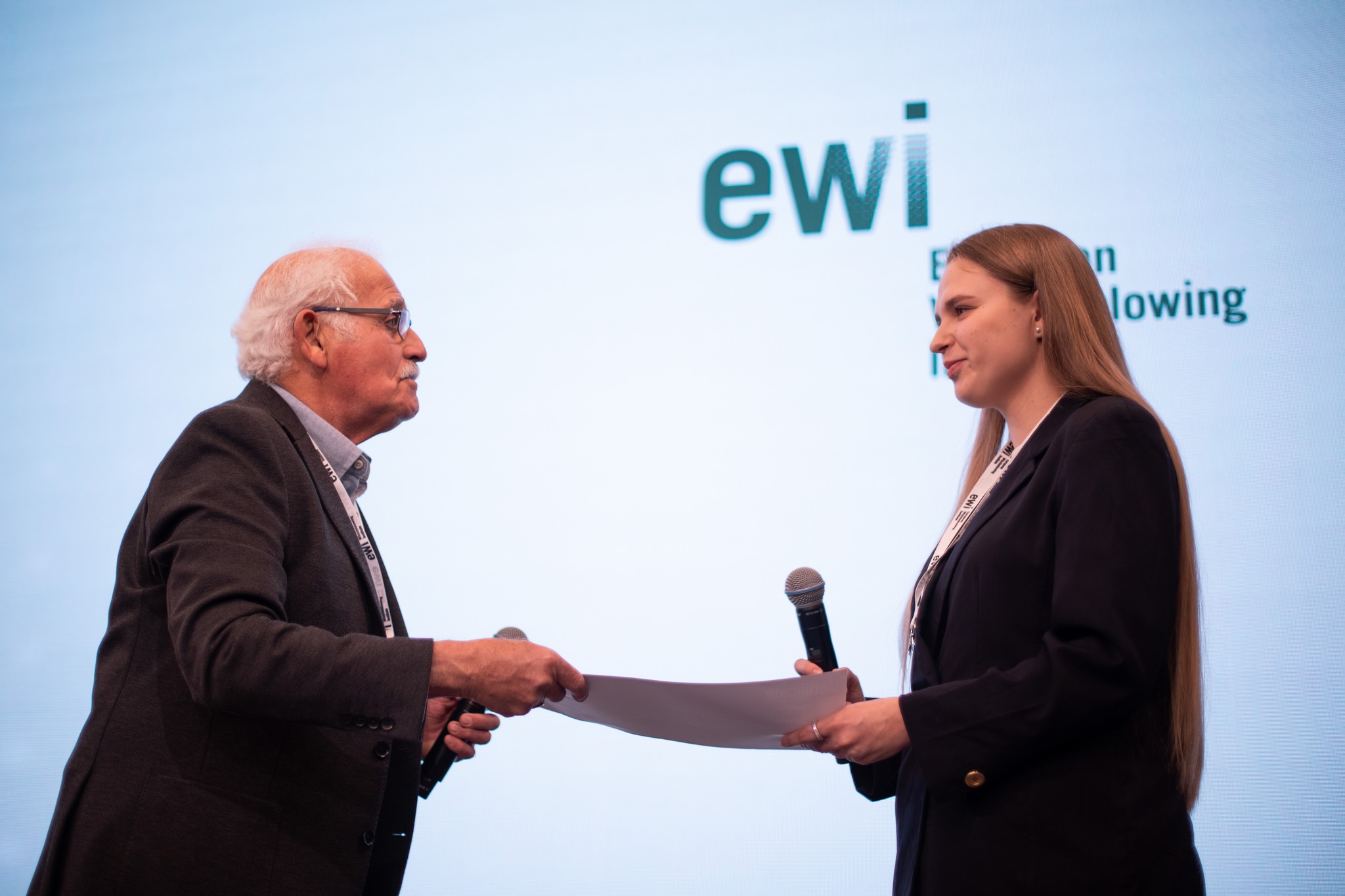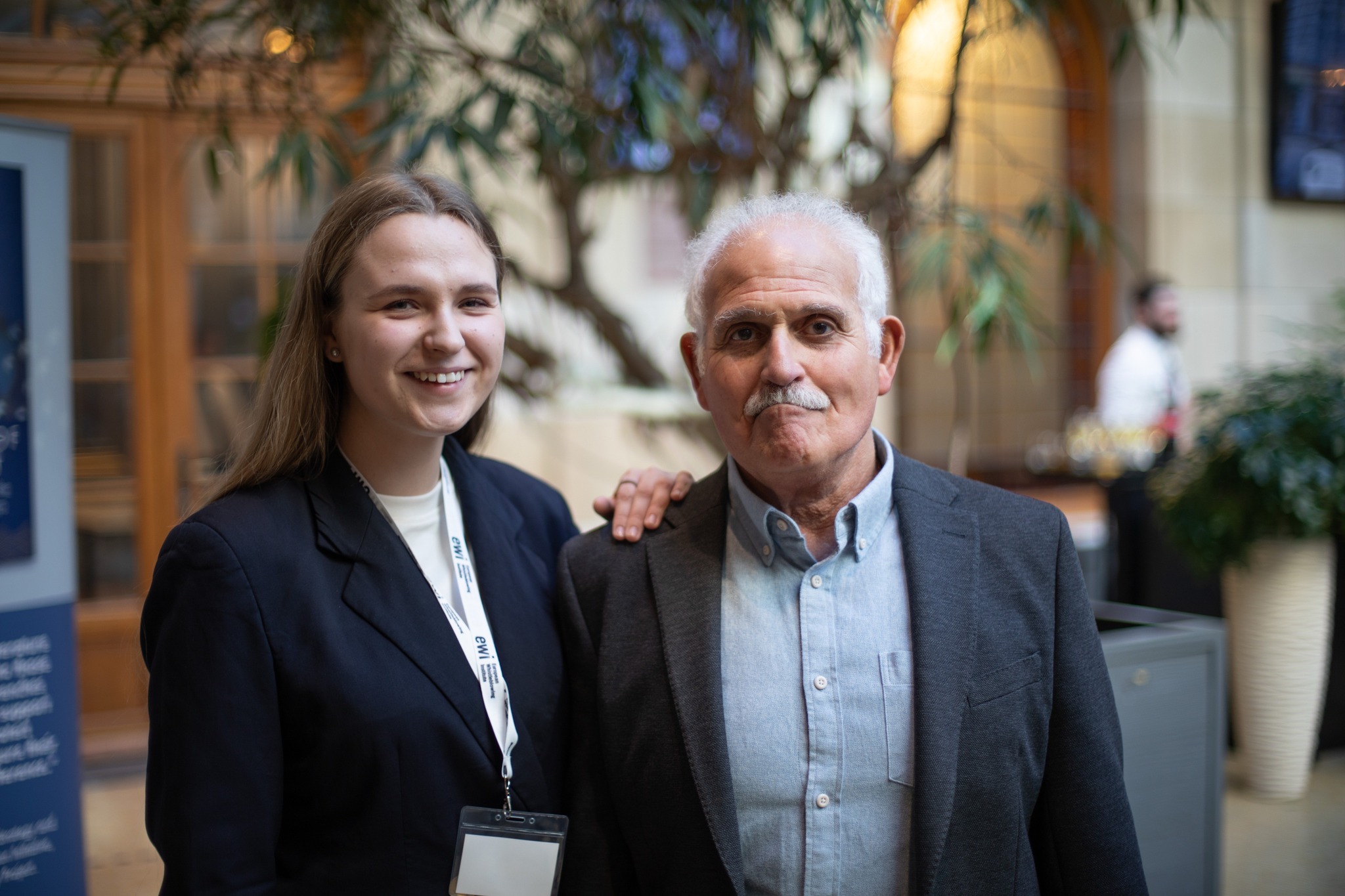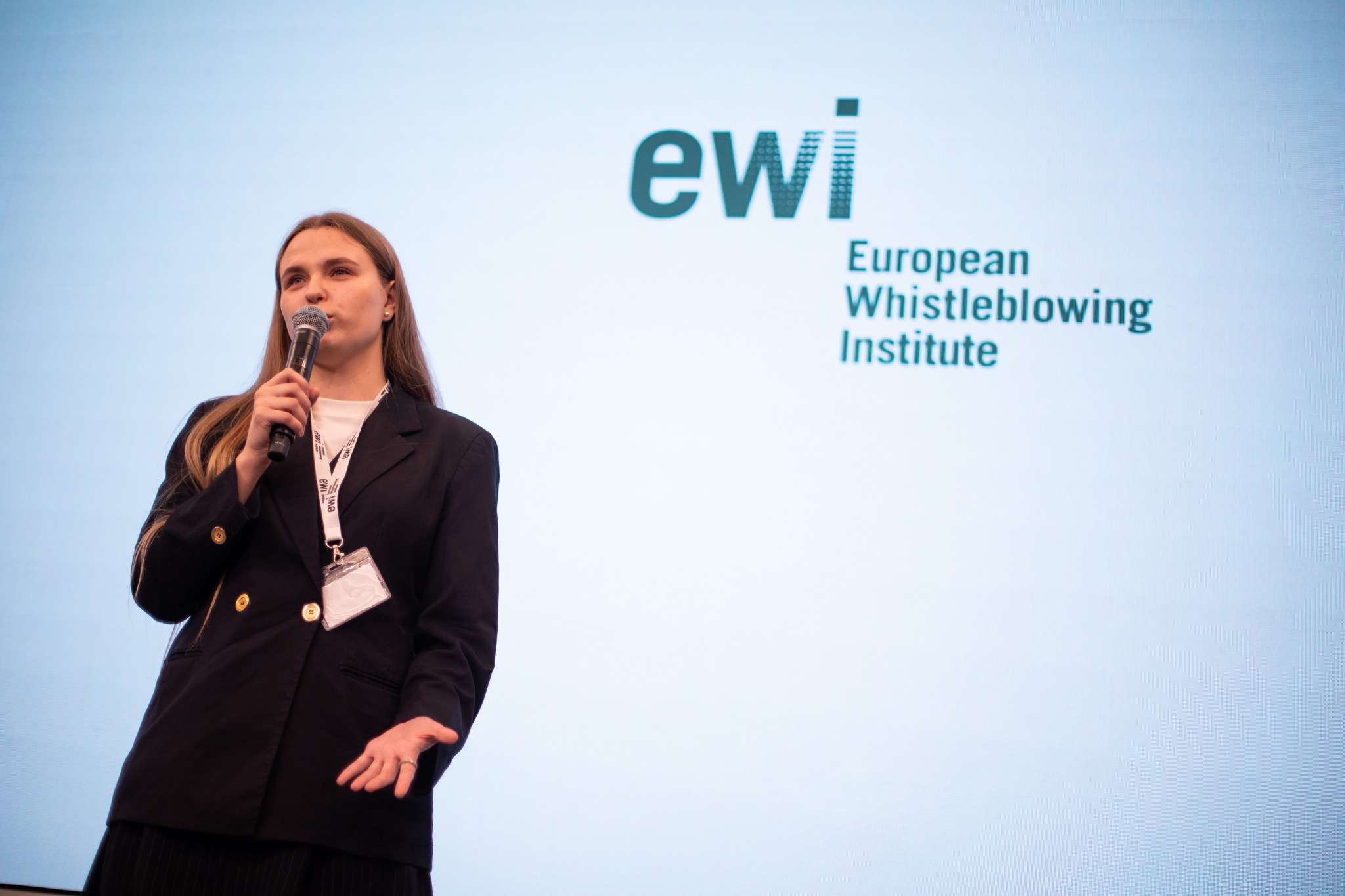Creativity in Science: Master’s Thesis Earned a Prize in Brussels

The master’s thesis of Eglė Vaizgėlaitė, a graduate of the Faculty of Law at Vytautas Magnus University (VMU), continues to earn accolades. Recognized last year in the Lithuanian Supreme Court’s competition for the best master’s theses, this year it received the prestigious Lewis Master Thesis Award, which was presented to her in Brussels by Professor David Lewis himself.
An Award with an Important Mission
This award, established for the first time this year by the European Whistleblowing Institute (EWI), highlights outstanding academic achievement and honours the pioneering work of Professor David Lewis. He is the coordinator of the International Whistleblowing Research Network, a legal scholar whose work has shaped the understanding of whistleblowers, their protection, and their role in promoting transparency as both a legal and moral foundation.
“When I started to examine the employment protection available in the UK for whistleblowers in the 1990s, I never contemplated a day like this or that one day undergraduate and post-graduate students would be taking courses on the law and practice of whistleblowing. I hope this award will encourage more people to come forward. This research will be very helpful and contribute to improvements for whistleblowers. Because that is what this is about: improvement for whistleblowers,” said Professor Lewis.
Eglė Vaizgėlaitė and David Lewis (photo by organizers)
“It was an invaluable experience that allowed me to connect with leading scholars and legal professionals in the field of whistleblower protection from across Europe,” said the award recipient, Eglė Vaizgėlaitė.
Her thesis, titled “The Issue of Whistleblower Exemption from Criminal Liability in Lithuanian Criminal Law,” was praised for its originality, critical approach, and novelty of the research. In the 2024 Lithuanian Supreme Court’s competition for best master’s theses, Eglė was recognized not only for having the best thesis but also for the most creative presentation, in which she illustrated whistleblower protection issues using chemical reagents.
The Importance of Inner Motivation
“People say that law is a dry science, devoid of creativity. But usually, it’s those who have either never studied law or have only engaged with it superficially who say that. In reality, law isn’t just rules and norms. It’s the ability to analyse, to ask questions, to critically assess situations and seek solutions,” Eglė stated confidently.
According to her, writing a thesis can at first seem exhausting or even intimidating – long bibliographies, vast academic literature, legal codes and case law, methodological requirements. But everything changes when you stop seeing it as a mandatory assignment and instead view it as an individual research project: a chance to explore what truly interests you, ask questions, and build arguments. In other words, a creative process.
“When choosing my topic, I knew I wanted to write meaningfully. The beginning of my thesis, like for other students, wasn’t easy – I had to read a lot to identify pressing legal issues and understand the foundations of legal regulation. But the moment you find a topic that really ‘clicks’ for you, everything changes. That’s when internal motivation appears,” the graduate of VMU Faculty of Law explained.
A Thesis as an Opportunity, Not an Obligation
In her work, Vaizgėlaitė tackled questions of human rights, loyalty to the state, and moral responsibility – topics highly relevant not only in Lithuania but across the democratic world. She views the whistleblower institution as one of the modern-day expressions of civic engagement. Her research offers valuable insights that could help activate Article 39-2 of the Lithuanian Criminal Code and reframe whistleblowing not as a Sisyphean task, but as a Promethean act of awakening the nation.
Eglė Vaizgėlaitė (photo by organizers)
“Through my example, I want to encourage students not to fear the thesis. It’s not just about suffering or a burdensome obligation. It’s an opportunity. An opportunity to discover a legal field you enjoy, to explore what genuinely interests you, to learn how to ask questions and seek answers, to contribute to academic discourse. And ultimately, to shape yourself as a growing professional,” said Eglė.
She believes that if we approach the thesis as a research journey and creative exploration, rather than a task to “complete and forget”, the process can become not only interesting but also inspiring. It might even lead to further academic writing, doctoral studies, or a legal career in an international context.














